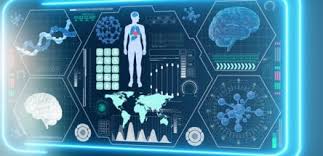AI-Powered Cancer Immunotherapy: How Predictive Models Are Personalizing Treatment
The Challenge of Predicting Immunotherapy Success
Immunotherapy—particularly immune checkpoint inhibitors (ICIs)—has revolutionized cancer treatment, offering long-term remission for some patients with lung cancer, melanoma, and kidney cancer. However, only 20-40% of patients respond to ICIs, and clinicians struggle to predict who will benefit.
Current biomarkers like tumor mutational burden (TMB) and PD-L1 expression are expensive, inconsistent, and not universally applicable. This leaves doctors relying on trial-and-error approaches, delaying effective treatment and increasing costs.
SCORPIO: An AI Tool Using Routine Blood Tests to Predict Treatment Response
Researchers from Mount Sinai’s Tisch Cancer Institute and Memorial Sloan Kettering Cancer Center have developed SCORPIO, an AI model that predicts ICI effectiveness using routine blood tests and clinical data—eliminating the need for costly genomic sequencing.
How SCORPIO Works
- Input: Standard lab results (CBC, metabolic panels) + clinical data
- AI Analysis: Machine learning identifies patterns linked to treatment success
- Output: Predicts patient survival odds and ICI response likelihood
Key Advantages Over Traditional Methods
✔ More accurate than PD-L1 & TMB testing in trials
✔ Works across 21 cancer types (validated in 10,000+ patients)
✔ Low-cost & scalable—uses existing lab tests
✔ No specialized equipment needed, ideal for resource-limited settings
Why This Matters for Cancer Care
- Avoids ineffective treatments (reducing side effects and costs)
- Speeds up personalized therapy decisions
- Democratizes precision oncology—usable in community hospitals
- Could guide combination therapies (e.g., ICIs + chemotherapy)
Next Steps: From Research to Real-World Use
Before widespread adoption, SCORPIO will undergo prospective clinical trials to confirm real-world performance. Challenges include:
- EHR integration for seamless workflow adoption
- Clinician training on interpreting AI predictions
- Equitable access to prevent disparities in care
The Future of AI in Immunotherapy
SCORPIO is part of a growing wave of AI tools transforming oncology:
- IBM & Cleveland Clinic’s AI predicts antigen-immune cell interactions
- Generative AI models optimize radiation therapy planning
- Liquid biopsy AI detects early-stage cancers from blood
As Diego Chowell, PhD (Mount Sinai) notes:
“SCORPIO represents a major step toward democratizing precision oncology—making advanced cancer care accessible to all patients, not just those at specialized centers.”
The Bottom Line
AI is shifting immunotherapy from trial-and-error to predictive, personalized medicine. With tools like SCORPIO, the future of cancer treatment is smarter, faster, and more equitable.
Next Frontier? Combining AI with real-time patient monitoring to dynamically adjust therapies—bringing us closer to truly adaptive cancer care.













